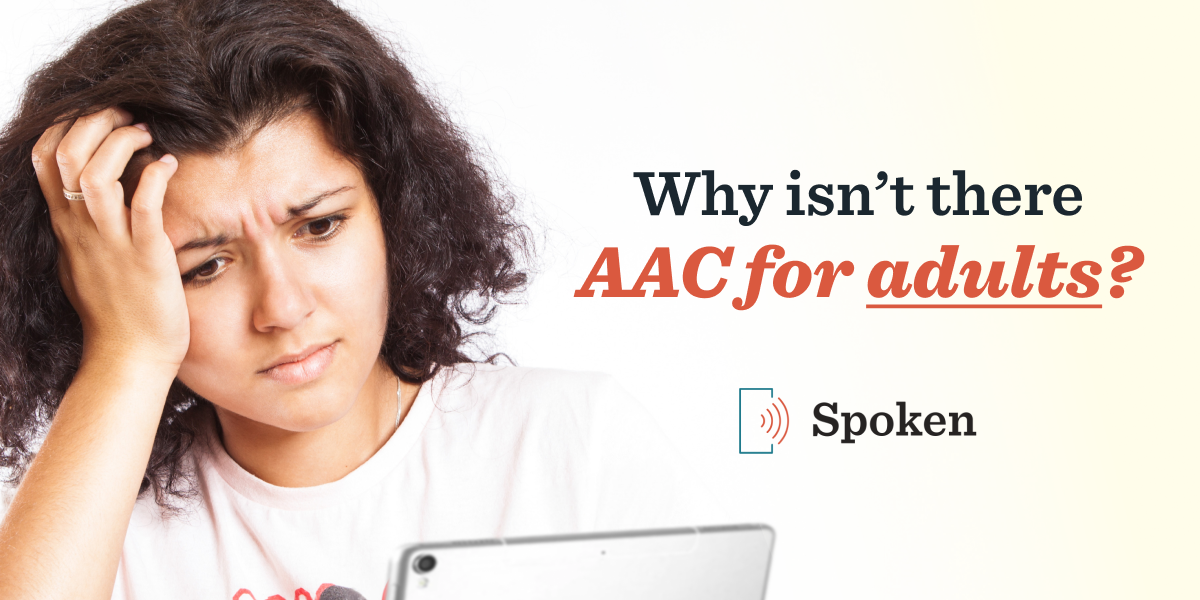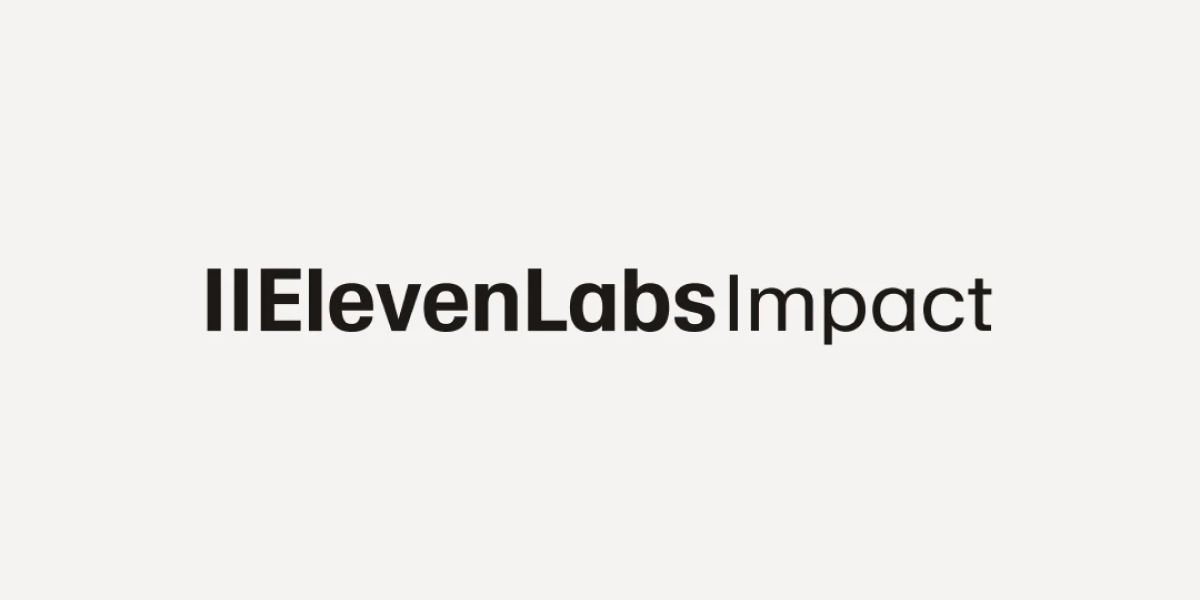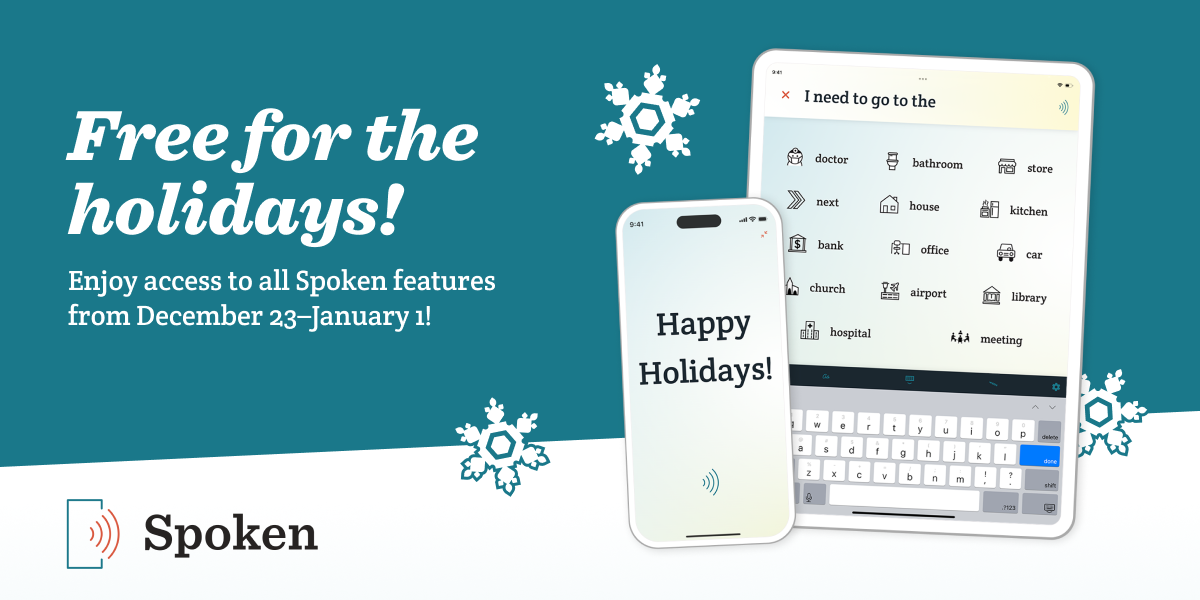AAC Apps for Adults: Why They're Hard to Find (and What to Use)

Have you ever wondered why there seems to be a lack of effective augmentative and alternative communication (AAC) options for adult users? If so, you’re not alone! Many people searching for AAC solutions have encountered the same issue, and it’s led them to Spoken.
It’s time to get real: AAC users possess diverse communication abilities and needs, but the vast majority of AAC options overlook this fact by utilizing the same, tired formula. Any AAC based on communication boards (which are grids of “cards” containing words and matching illustrations) imposes strict limitations and focus on allowing users to convey only the most basic needs. This can make some AAC users feel like they are using something designed for children, sometimes turning them away from tools that could vastly improve their lives. While board-based options are invaluable and perfectly valid tools for plenty of adults, they are far too limiting for others. That’s why Spoken decided to try something different.
We’re on a mission to break the mold and provide AAC that allows you to convey complex thoughts, employ a larger vocabulary, and communicate in a way that’s authentic to your personality.
Why Spoken Is Better for Adults
Diverse Needs Require Diverse AAC Options
The majority of current AAC is designed to address the needs of the same audience, but there isn’t just one type of AAC user. Diverse needs mean that there need to be diverse options.
Spoken was built with literate adults and teenagers in mind; an underserved audience when it comes to AAC. For an individual that understands language, board-based options can be frustrating or even feel infantilizing due to how limiting they are. Our system helps you when you get stuck, but doesn’t get in the way when you aren’t. To do this, we leverage artificial intelligence to predict what you want to say. Over time, these predictions adapt to your manner of speaking and improve to more authentically represent your personality. They can also adjust themselves based on the location or context you’re in. If you’re ordering food at a restaurant, for instance, Spoken has the unique ability to recognize that and offer the most relevant words for that situation.
Our predictive AAC system was initially designed for people with conditions like expressive aphasia, for whom it proved very powerful. These individuals usually have excellent reading and listening comprehension, but the right words will evade them when they try to say something. Our smart predictions are able to remind them of the correct word so that they can continue their thoughts uninterrupted. Over time, we’ve come to realize that this approach to AAC can be useful in many other cases as well. For instance, nonverbal autistic teens and adults have become a massive part of our audience.
Unlike the many conventional AAC apps that primarily focus on basic needs and limited phrases, Spoken offers the freedom to express complex thoughts. This expanded range of expression can be incredibly empowering for adults with communication disorders. It allows them to engage in diverse conversations and participate more confidently in various social and professional settings.
Addressing the Child-Centric Approach of AAC
Historically, AAC devices and apps have been largely focused on providing a service to children. The thing is, there are many adults that have speech and language difficulties too and they’re seeking options that respect their identities. Let’s take a look at a review of another AAC app that addresses this exact point:
“I noticed upon immediately opening the app to set it up, that this app is VERY child-centric. I’m an Autistic Adult looking for AAC for the days I go nonverbal. I personally find that to be the flaw with a vast majority of these apps. They are all child centered. Those autistic children do grow up. They turn into autistic adults and teens. They still need these apps for accommodations, and making them only have the option of child-like avatars, parental settings for the account, and cutesy [designs] really deters us from using the things that we need.”
Apps like this are serviceable for a more mature audience, but they’re far from ideal. Unfortunately, though, it’s what many adults have had to use because it’s all they had access to.
Unless AAC is being specifically marketed toward children, efforts should be made to avoid having it appear childish as to not infantilize the many people that need it. This especially applies to AAC being broadly marketed toward autistic individuals, as it plays into the “eternal child” stereotype often applied to adults on the spectrum. Furthermore, it’s important to consider audience when making decisions about including and implementing restrictive features like parental controls. For software being marketed toward a broad audience, options like that probably shouldn’t be enabled by default, or should at least be easily toggleable.
The Need For More AAC Options
Sometimes Traditional AAC Falls Short
Being limited to preselected words can feel undignifying or infantilizing to someone that’s used to being able to express themselves fully and uniquely. Unfortunately, communication boards do just that to the people that have been forced to use them as their only solution. Spoken changes the game by finally providing something different. It allows users to express complex thoughts or ideas, use robust vocabularies, and communicate in ways that reflect their unique personalities.
Experiencing issues with speech and language is already frustrating, so it’s imperative that we try to avoid worsening those feelings by overlooking an entire audience and forcing them to use something that wasn’t made with them in mind.
The Call For Adult-Oriented AAC
The review of another AAC app that we mentioned earlier concluded by saying this:
“I kindly and hopefully suggest making another app […] so that adults and teens can use it without feeling like we are being looked at like children.”
The call for greater diversity in AAC tech is clear. Developers can take this feedback as an opportunity to refine and expand their offerings to better suit adult and teenage AAC users. Spoken has already embraced the challenge by offering personalized and sophisticated communication solutions that empower these individuals to express themselves authentically and engage in meaningful conversations. Now it’s up to others to follow suit!
About Spoken
Spoken is an app that helps people with aphasia, nonverbal autism, and other speech and language disorders.


